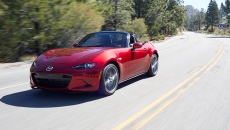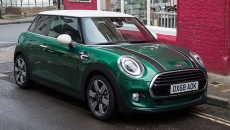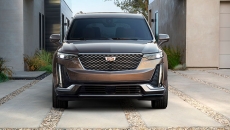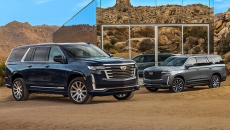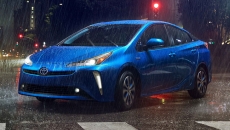Looking for the most efficient mid-size zero emissions car sold in Canada? Look no further — it’s the new 2023 Hyundai IONIQ 6 available now. And the EV’s interesting appearance is a large part of why the model is so aerodynamic and easy on energy.
“We call this design concept electrified streamliner, referring to the very aggressive roof line which is efficient but at the same time very attractive, sleek and simple. So, there is a dramatic departure from what you've seen on the [IONIQ] 5. But this intentional — what we are trying to do is to build cars that attract different customers with different needs and lifestyles,” said Ricardo Chan, senior manager of product marketing, during a presentation in Vancouver where the automaker recently held a national launch event.
The sloping rear window and mini whale-tail-esque spoiler have drawn comparisons by some to a Porsche. Rather fitting, as such attributes, among many others, give the sedan an ultra-low 0.22 coefficient of drag putting it in Taycan territory. To give some perspective, the aforementioned IONIQ 5, built upon the same E-GMP platform, possesses a 0.29 Cd.
So, what does the above all translate to? Journalists had an opportunity to test the grade-toping Preferred AWD Ultimate variants boasting a front 74/rear 165 kilowatt electric motor and 20-inch alloy wheels. The package yields a maximum drive range of 435 kilometres on a full charge. Drop down to the standard trim wearing 18-inch wheels and range goes up to 509, or choosing the entry level rear-wheel single 168-kilowatt motor provides an impressive 581 kilometres of travel distance.

In Canada, all utilize a big 77.4-kilowatt-hour battery pack mounted underneath the floor for a low centre of gravity, and an independent front and multi-link rear suspension setup helps the vehicle feel much more composed in the corners compared to the 5. Especially in Sport mode, which tightens up steering and redistributes torque, among other things, the full 320 horsepower and 446 lb-ft of combined torque can really be experienced in near-silent glory.
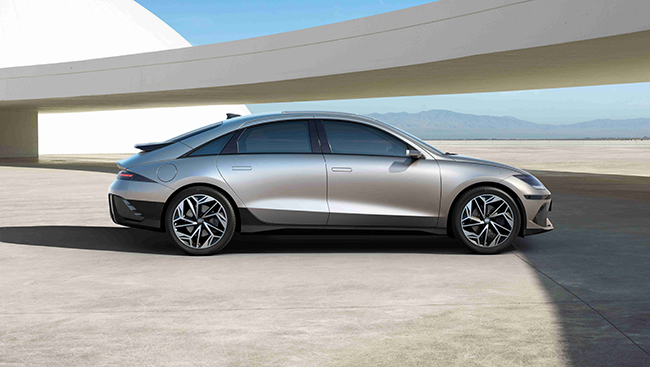
On a route taking participants from the downtown core to Fort Langley, Cypress Mountain, Squamish and then back downtown, the IONIQ 6 I piloted still had at least 30 per cent energy remaining — despite the significant elevation changes, winter comfort electronics activated and being fairly aggressive on the accelerator — assisted by four levels of regenerative braking controlled via the paddle shifters. Compatible with both 400 and 800-volt infrastructure, charging 10 to 80 per cent takes under 20 minutes using a 350-kilowatt Level 3 source.
Due to a generous 2,950-millimetre wheelbase, the cabin is spacious making our all-day adventure a comfortable one. Dual floating 12-inch displays stretch out across the dashboard integrating an instrument cluster and infotainment screen, and there’s no shifter taking up space on the centre console as a steering-column-mounted lever assumes gear selection duties. The signature playful Parametric Pixel lighting styling language is subtly found throughout the cabin, as well as exterior, totalling 700 examples (!) in all.
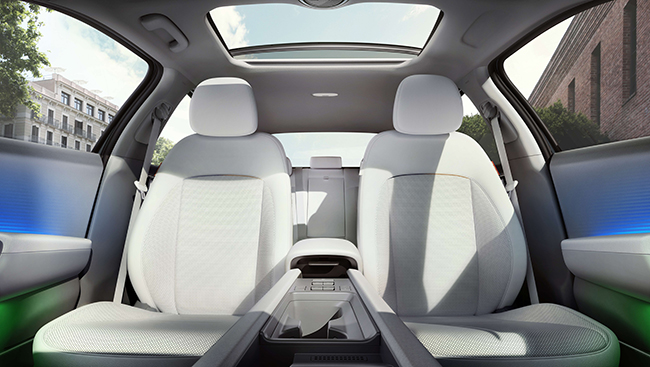
Speaking of design, sustainability plays a big part. The seats are constructed out of plant-based leather and recycled PET fabric, carpets out of recycled fishing nets and the door panels are coated in bio-paint featuring rape flower and corn extracts. Even the exterior colours, like the greyish Transmission Blue Pearl we tested, are derived from bamboo.
Starting at MSRP $54,999 (Preferred RWD), the 2023 Hyundai IONIQ 6 may be eligible for both the federal Zero-Emission Vehicles Program (up to $5,000 rebate) and provincial CleanBC Go Electric incentives (up to $4,000) depending on trim level. Visit the corresponding government websites for more information.
Highlights (as tested)
MSRP (base): $63,999
Motor: 74-kilowatt front/165-kilowatt rear electric
Horsepower: 320 (net)
Torque (lb-ft): 446 (net)
Gearbox: one-speed automatic
Layout: dual motor


